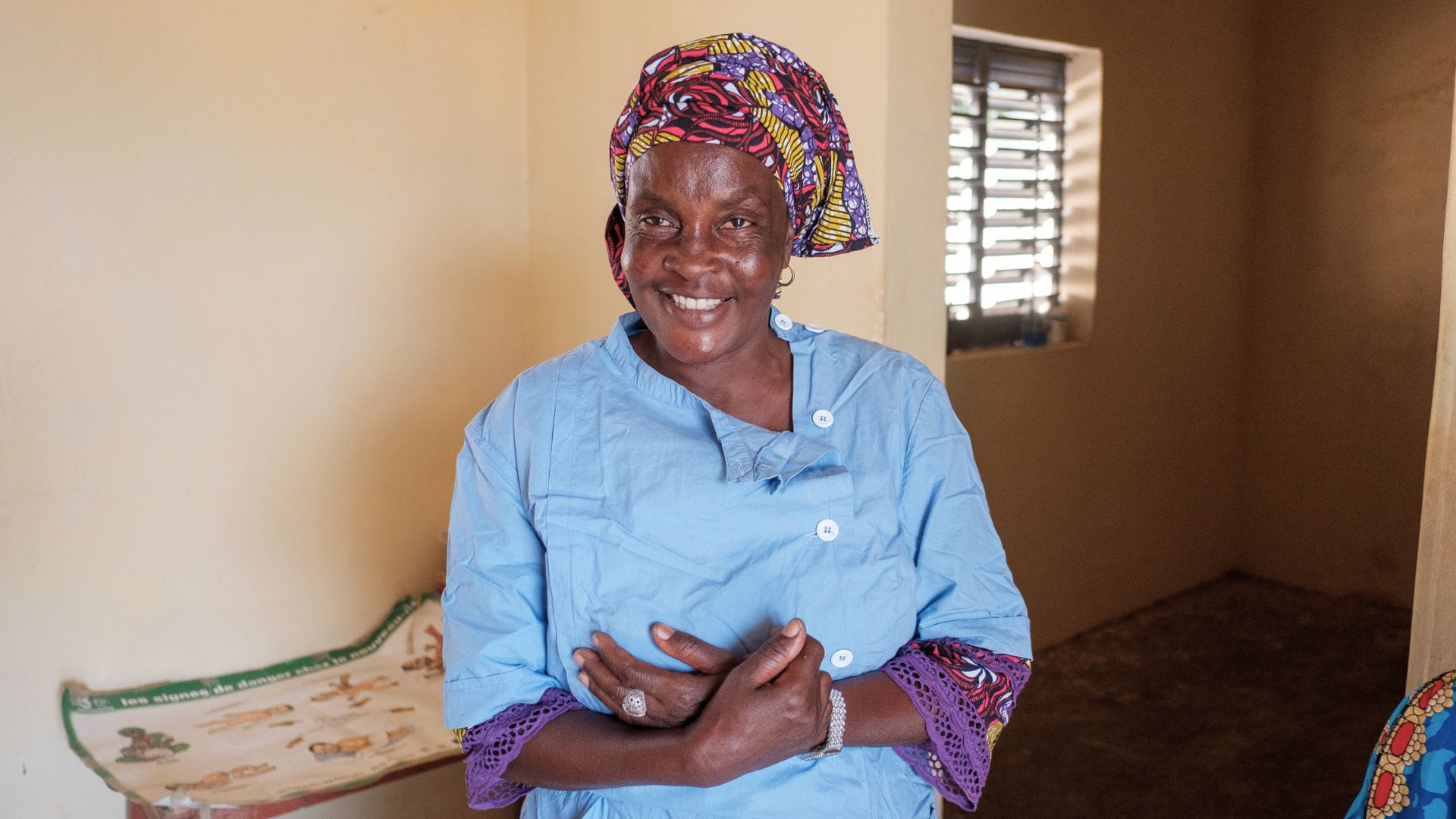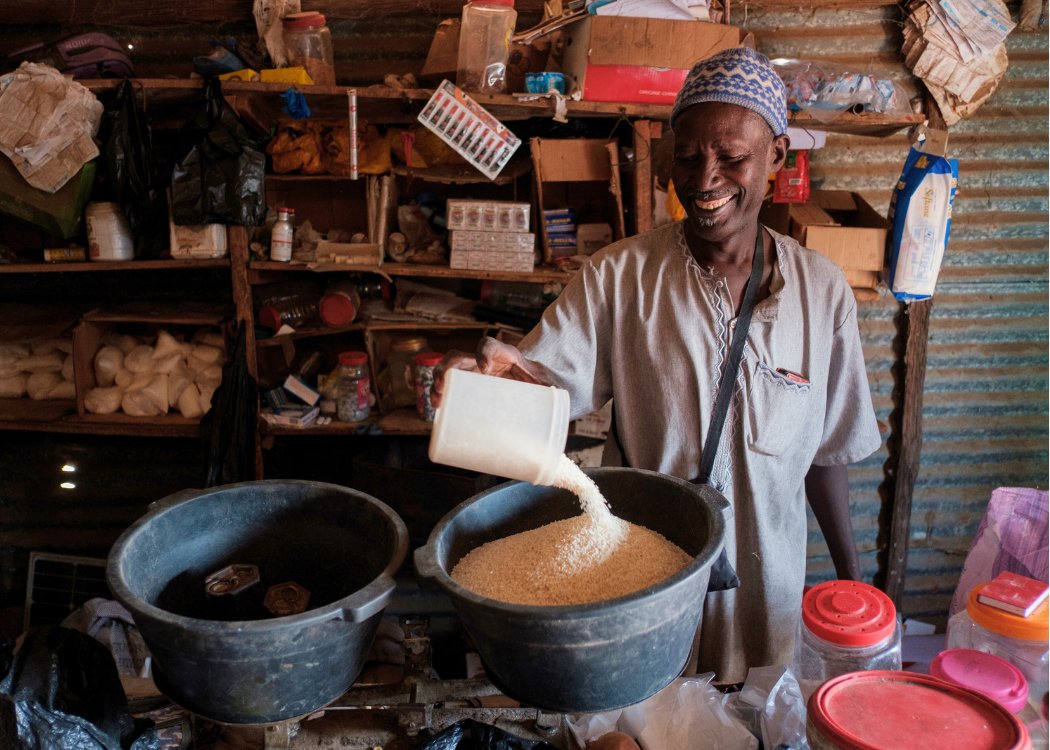Since opening our UK offices in 1995, we’ve worked alongside communities on the frontline of crisis. From conflict zones to regions hit hardest by climate shocks, we work to tackle one of the biggest threats to life today.
Our fight against malnutrition has always been grounded in science and field-based evidence. In the 1990s, Action Against Hunger scientists developed F100 and F75, the first therapeutic food formulas to treat severely malnourished children.
They would later go on to pioneer Ready-To-Use Therapeutic Food (RUTF), a game changing paste requiring no refrigeration or preparation.
Through our field research, we demonstrated that 90% of cases could be treated outside hospitals, influencing global protocols now adopted by over 70 national governments. In the 2000s, we pushed for treatment beyond clinical settings by promoting community-based care and widespread use of Mid-Upper Arm Circumference (MUAC) bands, aiding parents and local health workers to detect malnutrition early.
In Senegal, Maye is a clear-cut example that these programmes work. She was trained by Action Against Hunger to become a maternal health worker in her village.
Equipped with skills, tools and confidence, she now supports pregnant women, new mothers, and children, providing vital care that once required long, difficult journeys. Thanks to Maye and the village health hut, families can now access healthcare close to home.
“The community has empowered me. We have the tools here to look after each other.”
In the 2010s we refocused our efforts on hunger prevention through developing new innovations but introducing Smart Taps and ‘GPS for goats’ communities facing limited resources.
Now, in the 2020s, we are combining cutting-edge research with solutions which make the most of digital and technological expertise. This includes climate smart agriculture, such as drought-resistant crops to mobile diagnosis apps that help detect childhood malnutrition with just a photo, reaching 21 million people in 56 countries. Hunger remains the deadliest crisis today, but with scale and political will, we can end it.
“Thirty years ago, we set out with a simple belief, that no child should die from hunger. Action Against Hunger has stood with communities on the frontline of crisis, delivering practical support where it is needed most, proving what’s possible when innovation meets determination,” says Jean-Michel Grand, Executive Director of Action Against Hunger UK. “We’re proud of our legacy, but we are not here to mark time, we are here to end hunger. But progress is under threat. As funding decreases and conflict multiplies, we face a stark choice. Step up or step back. We are choosing to step up because every life lost to hunger is too many.”
While we have made substantial progress towards ending world hunger in the past, the work is far from over as hunger is on the rise again. With governments around the world slashing overseas development aid, we are already seeing the most vulnerable suffer.
With no immediate changes on the horizon, more lifesaving programmes will close their doors when aid runs out. This is an urgent situation that demands our immediate attention and action.
We have a big job on our hands. Today, over 700 million people are affected by hunger and malnutrition. This number is expected to rise. If trends continue, an estimated 582 million people will be chronically undernourished by 2030, with Africa accounting for half that number, according to the latest State of Food Security and Nutrition in the World report. This would return global hunger to 2015 levels, underscoring a troubling stall in progress.
In our 30 years, we have seen global malnutrition halved between 1990 and 2015: we can do it again. With your support, we can make a significant impact and bring us closer to a world free from hunger.
As we mark 30 years of impact, we’re proud of how far we’ve come, but we know progress is not guaranteed. Our legacy is not just in what we’ve achieved, but in our resolve to keep going. Our next chapter will be rooted in decades of evidence, driven by communities, and powered by people like you.



